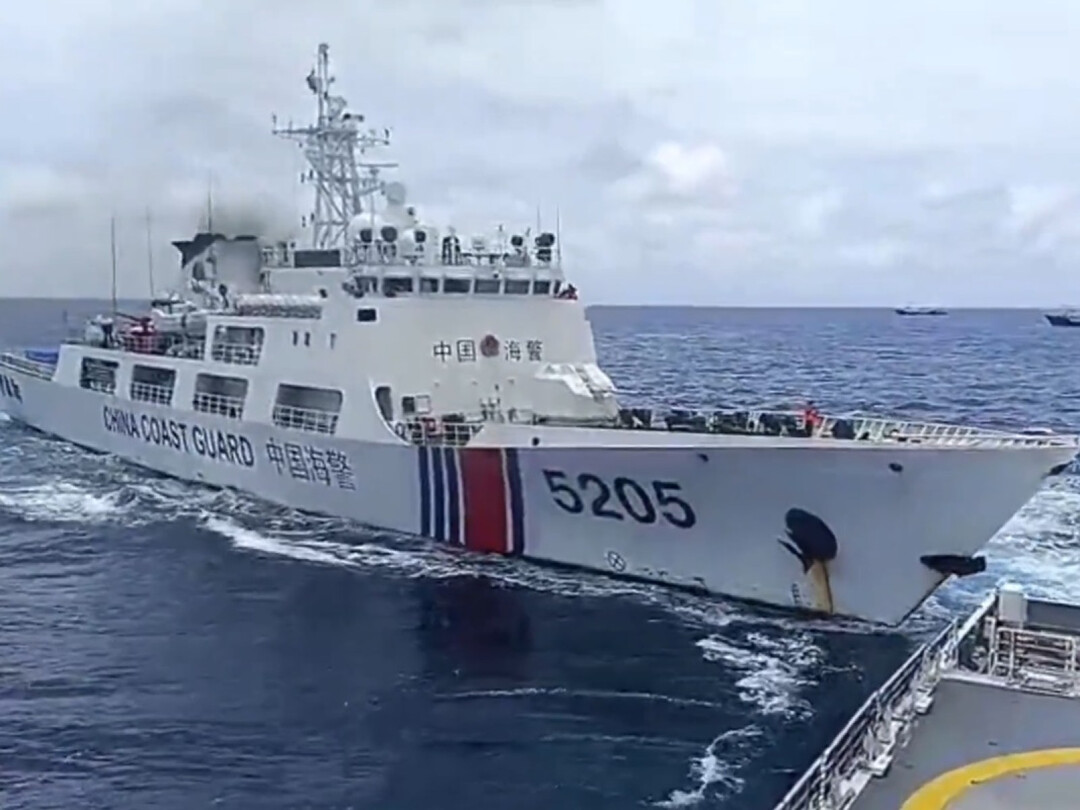
JAKARTA — A high-stakes confrontation in the South China Sea took a dramatic turn today as a Chinese coast guard vessel, engaged in a heated pursuit of a Philippine counterpart, collided with a Chinese naval ship. The incident, which the Philippine government asserts was the result of a recklessly operated vessel, underscores the escalating geopolitical friction in the vital waterway. The crash occurred near the disputed Scarborough Shoal, a flashpoint in the territorial claims of both nations.
The Philippine government, through a statement from its Coast Guard spokesperson Jay Tarriela, announced that the Chinese coast guard ship, while "dangerously maneuvering at high speed" to chase a Philippine vessel, struck a much larger Chinese navy warship. Video footage released by the Philippine government captured the moment of impact, showing the two Chinese vessels colliding with a loud crash. According to Tarriela, the collision left the front of the coast guard ship "severely damaged and unable to operate." This marked a tense day that also saw the Philippine coast guard vessel evade water cannon attacks from the Chinese side.
The Chinese Coast Guard issued a statement defending its actions, claiming it took "necessary measures" to expel the Philippine vessel and that its operations were "professional, lawful, and in accordance with the law." However, the internal collision of its own forces paints a picture of a more chaotic and uncoordinated operation.
The incident is the latest in a series of events heightening regional tensions, particularly between Beijing and Manila. The friction intensified following recent comments by Philippine President Ferdinand Marcos Jr., who, during a visit to India, suggested that the Philippines could be unavoidably drawn into a potential U.S.-China conflict over Taiwan due to its geographical proximity. China's Foreign Ministry reacted sharply, admonishing Marcos for "playing with fire." Marcos later expressed bewilderment at China's harsh reaction, stating his comments were likely "misunderstood for propaganda purposes."
This collision serves as a stark reminder of the volatile nature of the territorial disputes in the South China Sea. China claims sovereignty over almost 90% of the sea, a stance contested by the Philippines, Vietnam, Taiwan, Malaysia, and Brunei. Since Marcos's presidency began in 2022, the Philippines has pivoted away from its predecessor's pro-China stance, adopting a more assertive approach to defending its territorial rights. This includes the enactment of new laws aimed at strengthening its claim to the waters.
Beyond the Philippines, China’s assertiveness has been visible in other areas of the region. Just days before the collision, Chinese vessels entered the waters around the Pratas Islands, which are under Taiwan’s control, leading to a tense 22-hour standoff. Furthermore, China expressed strong disapproval of a recent joint patrol conducted by the Philippines and India in the South China Sea. In the East China Sea, China also recently announced that its vessels had driven a Japanese fishing boat away from the waters around the Senkaku Islands (known as the Diaoyu Islands in China), another long-standing territorial dispute.
The collision of China's own vessels, a coast guard ship and a navy ship, presents a new layer of complexity to the region's geopolitical dynamics. While it may be an isolated navigational error, it occurred in the context of an aggressive operation against a foreign vessel, highlighting the risks of such high-speed, high-tension maneuvers. The incident may also prompt questions about coordination and command within China’s maritime forces as they operate in an increasingly contested and scrutinized environment. As the region watches closely, the ramifications of this collision and the ongoing disputes continue to unfold.
[Copyright (c) Global Economic Times. All Rights Reserved.]






























